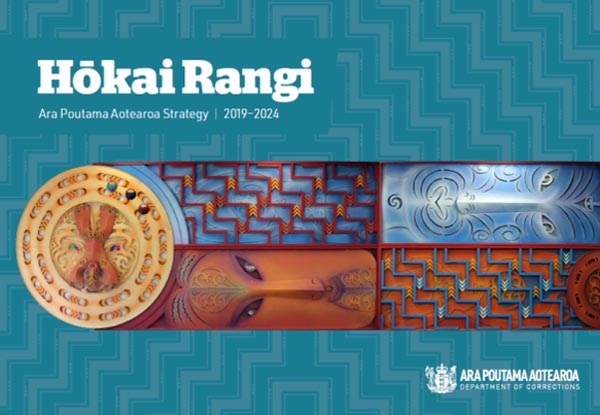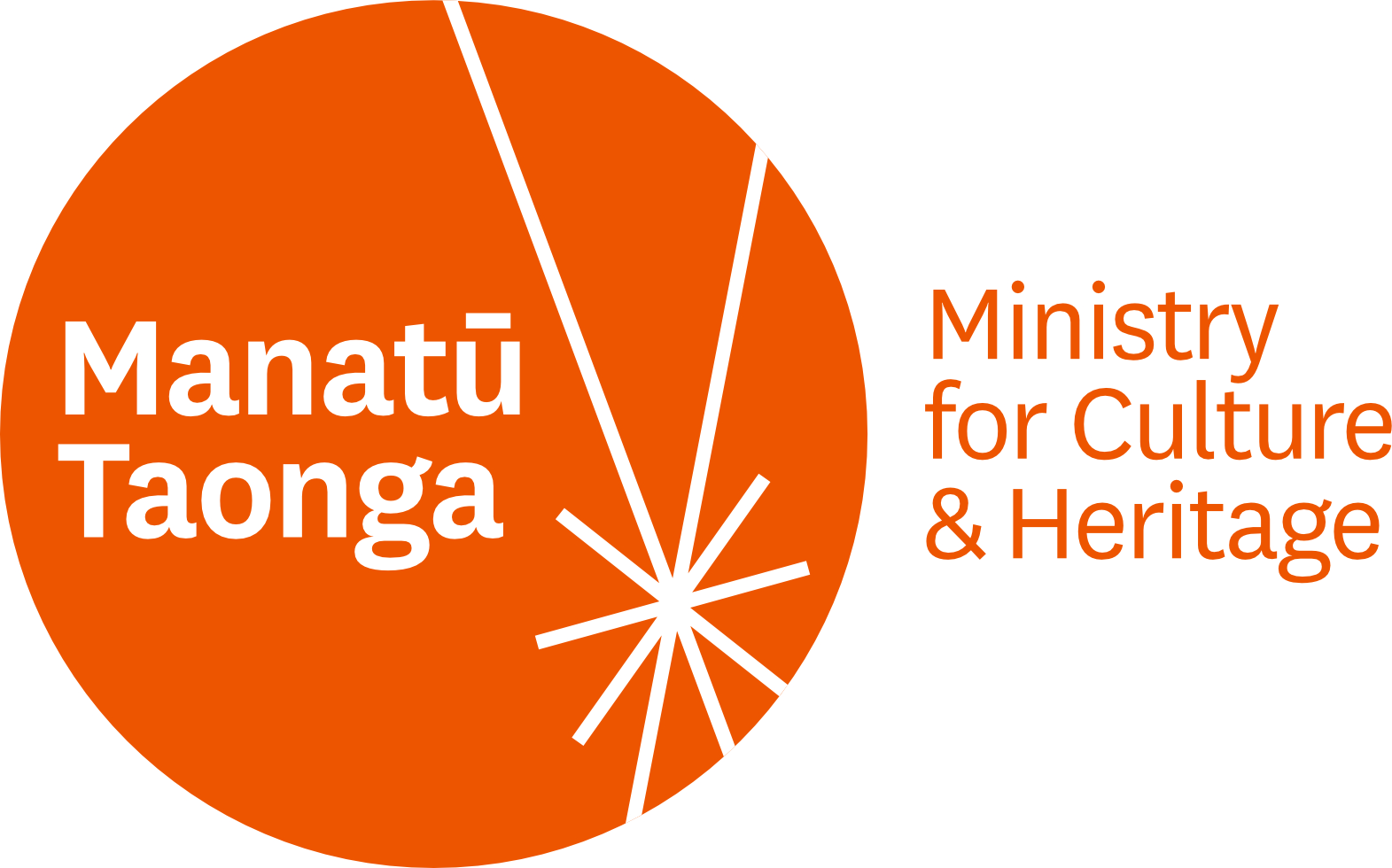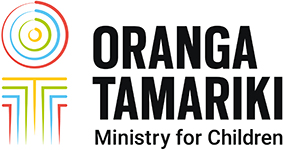“If you want to find redemption and to rehabilitate then it’s essential to have access to arts and cultures … It’s a right, not a privilege, to have access to your culture,” said Rue-Jade Morgan, recipient of last year’s Māui Tikitiki ā Taranga Award.
 Rue-Jade highlights a key message around the right of prisoners to access their culture. His own journey as a former prisoner and now lecturer at Otago Polytechnic informed the design of his programme at Otago Corrections Facility called Te Hōkai Manea Tipuna (returning to the path of our ancestors).
Rue-Jade highlights a key message around the right of prisoners to access their culture. His own journey as a former prisoner and now lecturer at Otago Polytechnic informed the design of his programme at Otago Corrections Facility called Te Hōkai Manea Tipuna (returning to the path of our ancestors).
Indeed, the Department of Corrections’ Hōkai Rangi Strategy lists six key strategic areas for change, including “Incorporating a Te Ao Māori worldview” (see p17). Here, the strategy states: "Access to culture is a fundamental right, not a privilege, regardless of a person’s circumstances such as security classification, behaviour, gang affiliation, gender or therapeutic needs.”
For Māori, the arts – whakairo, kowhaiwhai, waiata, raranga, kapa haka, toi atea – are integral to Te Ao Māori and their culture.
The Hōkai Rangi Strategy and Rue-Jade’s message help frame the discussion around ways we can support and value indigenous arts practices in correctional facilities.
Supporting toi Māori initiatives
In June, I attended the Arts in Corrections Lower North Island Network meeting in Manawatū. The main topic we discussed was about ways we could support toi Māori initiatives. We heard from Mātua Charles Matenga, Mitch Tareha and Juanita Davis. They each spoke passionately about whakairo and raranga, and the impact they have in reconnecting people to their culture.
 Mitch had just delivered a ten- week whakairo workshop in collaboration with Manawatū Community Corrections. He spoke about one participant who had reconnected with his mother because of the workshop. Previously estranged, they were able to connect through their belief in the importance of Te Ao Māori.
Mitch had just delivered a ten- week whakairo workshop in collaboration with Manawatū Community Corrections. He spoke about one participant who had reconnected with his mother because of the workshop. Previously estranged, they were able to connect through their belief in the importance of Te Ao Māori.
Charles Matenga explained that whakapapa and learning the stories of your ancestors are an integral part of the carving process. This in turn helps repair relationships and strengthen identity.
The two master carvers delivered this workshop with funding from the Palmerston North City Council’s Creative Communities Scheme and worked carefully to design the project to best suit the needs of the participants.
Georgia Larkins and Mitch Tareha are now keen to get funding for a raranga workshop but also realise that funding from the Palmerston North City Council is contestable and therefore not always successful. You can see some of the workshop images
Weaving programme at Whanganui Prison
Juanita Davis, a volunteer at Whanganui Prison, gave an equally impressive presentation about her weaving programme with the men in Whanganui Prison. The images of beautiful kete and kakahu demonstrated a high level of skill.
 With the support of Juanita and staff from Whanganui Prison, the men have presented one community exhibition and also donated many artworks to the local hospice for its fundraising auctions.
With the support of Juanita and staff from Whanganui Prison, the men have presented one community exhibition and also donated many artworks to the local hospice for its fundraising auctions.
During the Covid-19 lockdown last year, Juanita said she realised it was no longer financially viable for her to deliver the raranga programme as a volunteer. Her husband, who knew how passionate she was about the programme and the difference she was making, persuaded her to continue.
In telling this story, I want to acknowledge that our volunteers go above and beyond for people in prisons. However, their skills and the value they add to the prisoners’ rehabilitative journey need to be recognised financially.
I keep talking about the importance of a national Arts in Corrections framework or set of guidelines and Juanita’s experience is a compelling reason why this framework is needed. Remuneration is needed for professionals delivering high-quality programmes. Guidance on this and other principles would support the sector, provide consistency across all the sites, and help professionalise the artists and facilitators delivering arts programmes.
Creative Spaces Funding Initiative
Arts Access Aotearoa has been involved in the design and delivery of the Creative Spaces Funding Initiative, the Government’s $18 million fund delivered through Manatū Taonga Ministry for Culture and Heritage over three years. This is a huge milestone! It makes the arts more accessible to more people, supporting the health and wellbeing of our communities. You can read more about the 54 creative spaces that received funding through this initiative.
 The Hokai Rangi Strategy tells us that people in correctional care have high and complex needs. For example, 93% of Māori in prison have experienced or are experiencing mental ill-health. Imagine if there was similar funding available, using toi Māori to improve their mental health.
The Hokai Rangi Strategy tells us that people in correctional care have high and complex needs. For example, 93% of Māori in prison have experienced or are experiencing mental ill-health. Imagine if there was similar funding available, using toi Māori to improve their mental health.
UK musician and singer/songwriter Bonnie Schwarz volunteered at Arts Access Aotearoa for five weeks and helped me research best-practice models – locally and internationally. Her findings contributed to Arts Access Aotearoa's Arts in Corrections literature review, now available on our website.
I would like to congratulate Ara Poutama Aotearoa Department of Corrections for providing the space and opportunity to showcase the work of prisoners in its refurbished national office in Wellington. You can read more about this in Showcasing art in Corrections’ national office.
I recently attended the opening of the new exhibition at City Gallery Wellington. The show includes artists Brett Graham’s Tai Moana Tai Tangata and photographer Tia Ranginui’s breathtaking series Tua o Tāwauwau/Away with the Fairies. This is an example of two great artists exhibiting in one of the most prestigious galleries in Aotearoa. It got me thinking about the future of our indigenous artists and hoping that one day, we will see a former prisoner exhibiting at City Gallery Wellington.
LATEST POSTS
- Accessibility
- Accessible Arts
- Achievements Celebrations
- Active Recreation
- Advocacy Campaigns
- All New Zealand
- Arts Accessibility
- Arts Culture
- Arts Culture Venues
- Arts For All
- Arts In Corrections
- Canterbury Region
- Community Arts
- Community Services
- Covid 19
- Creative Spaces
- Creative Wellbeing
- Dance
- Disability
- Festivals Arts
- Galleries
- Global Issues
- Health
- Learning Disabilities
- Local People
- Maori Art
- Mental Health
- Musical Theatre
- Obituaries
- Professional Development Arts
- Stories About Organisations
- Theatre
- View Point
- Visual Arts




